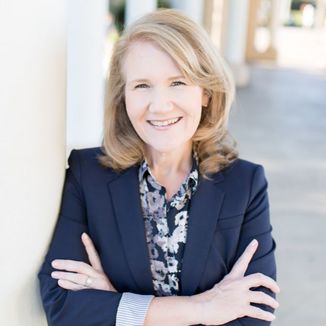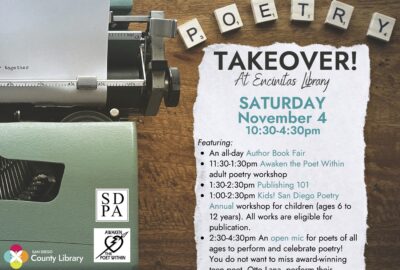Lizzie Wann, Puna Press Live
LifeBeat Follow-Up: Poppy Fitch
The next follow-up conversation is with Poppy Fitch, one of my former guests on the Puna Press Live show, LifeBeat: Conversations with Purposeful Womxn. She was on the 5th episode back in January 2021 (watch the episode). Learn more about the research she did to earn her PhD, how she connects knife skills to food justice, and what she hopes for 2022, among other things. This Q&A was conducted by email, and Poppy provided her answers on February 18, 2022.

~~
Lizzie: It’s now been over a year since our conversation, and my first question to all the guests was about traveling. You said you wanted to go back to New Orleans. Were you able to do that?
Poppy: Laissez le bon temps rouler! Yes! We traveled to New Orleans – our favorite city – in July! It was interesting to see the city coming alive again, and I especially enjoyed meeting and talking with artists whose livelihood depends upon tourism. We brought home a small scrap metal butterfly that graces our garden to commemorate the trip. It reminds me of our collective metamorphosis.
Cleaning your house was one of your favorite things to do when you’re alone. You also mentioned reading and taking a nap. Did you pick up any new solo habits in 2021?
I’m cooking so much more than I ever did before, and really enjoying picking up new skills in the kitchen. I’m also just getting over a pretty bad stretch of Covid, so those naps are a lifesaver! 🙂
The one important skill you thought everyone should have was how to handle a knife in the kitchen. When did you learn this skill and why do you find it so important?
I’ve found that not having the right tools, and feeling intimidated in the kitchen, are two huge barriers to rolling up my sleeves and being adventurous in my cooking. I think this is really important when we start thinking about healthy eating, more mindful eating practices, and food as medicine. A while back I took a knife class because I knew this was an area I needed to work on. The other thing I’ve done recently is to invest in better tools in kitchen, so adding new knives, pots and pans. All of this has really upped my cooking game! I think this is important to talk about, because folks who come from poverty do not always have access to healthy food or to the information or tools necessary to be empowered in the kitchen. Food is social justice, as my good friend LIndsay White says!
This episode, if you recall, featured three educators, and I asked you each to summarize your education journey. You generously shared your story of being in the foster care system to earning your PhD. In fact, your doctorate focused on former foster youth. Can you tell us more about your research?
Yes! A researcher’s favorite question!
Because of my dual identities as an educator and former foster youth, I was interested in exploring the conditions that led to success in higher education for these students. Research demonstrates the disproportionate challenges faced by foster youth as they emancipate from foster care and has evidenced compelling data to inform interventions to support them in their educational pursuits to interrupt these challenges. That said, outcomes of college students who are foster youth remain a concern. The body of literature on foster youth was primarily problem-focused and this helped to formulate my appreciative inquiry approach, which asked the question, “what went well?” in order to examine the experiences of college graduate foster youth. It is my hope that this research will inform and evaluate the effectiveness of policy and practice aimed at increasing foster youth college success.
Four themes emerged for the research (a) education for survival, (b) authentic care, (c) holistic support, and (d) foster youth identity. What I found was that foster youth experienced their degree attainment dichotomously: seeing “college success” as both their only option for a future that defies the odds, while also expressing a sense of awe or disbelief of their achievement. Relationships with adults who demonstrated authentic care for them, together with programs and support services designed to meet their unique needs, were viewed as integral to their achievement of educational goals. Finally, the participants expressed that accepting their foster youth identity was critical to their success, and to finding community and belonging.
It is my hope that colleges and universities can use this work to inform their practice and programs to support foster youth!
Like the other guests on the show that day, you commented on how the pandemic had shone a light on the inequities or gaps for students, whether it was food insecurity, homelessness, or technology access. Over this last year, have you seen that get better, worse, or stay the same? What, if anything, has improved in the last year?
As a community college administrator, I have seen two really seismic shifts: first of all, we are no longer debating that racial inequity impacts educational success. We know it’s true and we know it’s a fact we are called to address. Secondly, I am observing practitioners taking responsibility for the inequities that we are seeing. So, instead of saying, “The students come from underserved backgrounds or are under prepared and this explains their lack of success,” instead, we’re inquiring, “What can the system do to better serve the students and support their success?“ This reframing shifts the burden to institutions and systems and away from the individual. This is really powerful, and one of the outcomes of my research on foster youth. So it offers hope for a different future.
The next topic you and I covered was your involvement with the Women’s March in San Diego. In 2021, it was virtual. Was there a march, virtual or otherwise, this year? If yes, what were the themes? Do you see the march being a force for years to come?
We actually did host an in-person march on Saturday, October 2, 2021, in San Diego and across the nation. The focus of this march was on reproductive rights and sending a clear message to the US Supreme Court that we won’t go back. It was also a response to restrictive state legislation that is in place as we speak that prevents women who are most in need of reproductive healthcare access to that care. I won’t predict the future of Women’s March broadly, but I will say that I perceive the racial reckoning we are in the midst of, the political environment, and a greater awareness of the gendered inequities that have resulted from the pandemic demonstrate a clear need for sustained advocacy towards intersectional social, environmental and economic justice.
The last thing I asked was to share your one big hope for 2021. Yours was that you hoped by the end of 2021, that family reunification for the children who were separated from their parents at the border was complete. Just this week [week of Feb 3, 2022], the White House said it supports permanent legal status for families that were separated at the border. It seems like we have a long way to go. What are your thoughts on the Biden administration’s first year?
My sense is that the Biden/Harris administration has had so much to deal with in terms of the incredible impact of the pandemic, and the undoing of four years under the Trump administration. So it’s hard for me to be critical of their work. That said, of course there is much to be done and I wish the wheels of the government moved more swiftly than they have in the past year. Also, I’d like to see student debt cancelled, thank you for asking!
What is your hope for 2022?
Grace is the word I’m embracing for 2022. I want to extend grace more freely, I hope to receive grace from others, and generally I wish us a state of grace as we navigate the winding path ahead.
~~
Thanks so much, Poppy, for your thoughtful responses. May we all have some grace in this year and beyond. Thanks for all the work you do!







